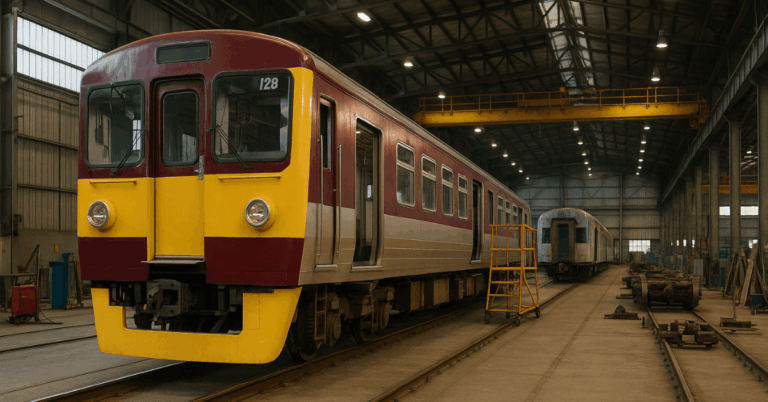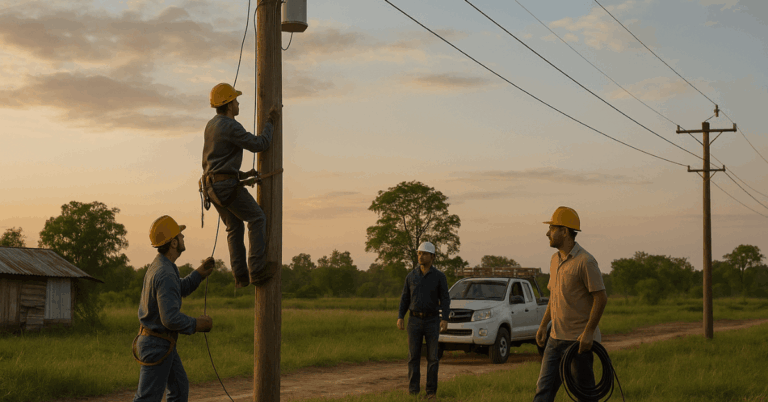Express trains are changing their schedules to skip select stations for faster travel.
The adjustment aims to reduce delays and improve punctuality across major routes.
Railway authorities say this move will help increase overall time efficiency while maintaining reliable service for passengers.
Reason for the Change
The rail operator will skip specific stops on express services to make travel faster. This change aims to reduce delays and improve schedule reliability.
You will still reach major stations, but some smaller ones will be bypassed.
- To reduce overall journey time by limiting stops.
- To improve service punctuality and avoid trains getting delayed behind slow-moving local trains.
- To allocate resources more efficiently (fewer stops = less dwell time + better equipment use).
- To increase the attractiveness of train travel for longer-distance riders by offering faster segments.
- To focus stops on higher-demand stations, while lower-traffic stops are skipped.
Affected Routes and Stations
Here are the routes and stations that will be affected by the express-train skipping policy.
You’ll see which lines are involved and which stops are being bypassed.
- Route A (Express Line East): skips Station 3, Station 5, and Station 9
- Route B (Express Line West): bypasses Station 2 and Station 8
- Route C (Regional Express): omits Station 4, Station 7, and Station 10
Expected Time Savings
Here are the estimated time savings from skipping certain stations on express services. These figures show how much faster your trip could be.
- Skipping each stop may save around 1-2 minutes of journey time. niquette.com+1
- In some systems, skipping several stops led to savings of up to about 6 minutes for a route where 7 stops were skipped. RAILROAD.NET+1
- On longer-distance or high-speed services, the reduction in total trip time can be around 3.26% compared to all-stop services in one study. PMC+1
- For specific peak-hour commuter trips, savings of 8-11 minutes were possible when express trains bypassed many stops.

Passenger Impact
Skipping select stations affects different groups of passengers in various ways. Some will experience faster travel, while others may need to adjust their routines.
- Faster Commutes: Regular long-distance passengers will enjoy shorter travel times and fewer delays.
- Limited Access: Riders from skipped stations will need to transfer to local trains or alternative routes.
- Increased Transfers: Some passengers may face extra transfers, slightly extending the total trip duration.
- Reduced Congestion: Express trains will be less crowded as boarding is limited to major stations.
- Possible Confusion: First-time users may need clear signage and announcements to adapt to new schedules.
- Fare Adjustments: Ticket pricing may change slightly if travel zones or service classes are affected.
- Improved Reliability: The overall network will benefit from smoother operations and fewer cumulative delays.
Operational Benefits for the Rail Network
Here are the main operational benefits the rail network gains when express trains skip select stations.
Each point highlights how the change improves performance and efficiency.
- Reduced Dwell Time – Trains spend less time at stations, allowing faster average speeds and better schedule control.
- Lower Energy Use – Fewer starts and stops reduce fuel or electricity consumption and equipment strain.
- Demand-Based Stops – Services focus on high-traffic stations, improving efficiency and aligning with passenger flow.
- Higher Capacity – Shorter stop durations free up track space, enabling more frequent train services.
- Improved Reliability – Fewer stoppages mean fewer cascading delays, leading to more punctual operations.
- Cost Savings – Reduced wear on brakes, engines, and infrastructure lowers maintenance and operating costs.
- Service Differentiation – The system can balance express and local routes to serve different passenger needs effectively.
Environmental and Energy Efficiency
Skipping certain stations helps trains run more efficiently and sustainably.
These changes lower energy use, reduce emissions, and support greener transport operations.
- Reduced Energy Consumption – With fewer stops, trains use less power for acceleration and braking, cutting overall energy demand.
- Lower Carbon Emissions – Reduced fuel or electricity use means fewer greenhouse gas emissions per trip.
- Less Engine Idling – Skipping low-demand stations reduces the time trains spend stationary, decreasing unnecessary fuel burn.
- Improved Air Quality – Lower emissions and less idling contribute to cleaner air around stations and tracks.
- Reduced Equipment Wear – Fewer braking and acceleration cycles extend the life of mechanical systems, minimizing waste.
- Efficient Resource Use – Energy savings help operators reallocate resources toward maintenance and service improvements.
- Support for Green Initiatives – These operational changes align with national and regional sustainability goals for rail transport.

Technology and Monitoring
Modern technology plays a key role in managing the new express schedules.
Digital monitoring helps rail operators maintain accuracy, safety, and service quality.
- Real-Time GPS Tracking – Enables precise train location updates, helping control centers monitor punctuality and movement.
- Automated Scheduling Systems – Software adjusts train timings automatically to maintain a balance between express and local services.
- Predictive Maintenance Tools – Sensors detect wear or faults early, reducing breakdowns and improving reliability.
- Data Analytics – Continuous analysis of passenger flow and timing helps optimize station selection and service patterns.
- AI-Powered Control Systems – Artificial intelligence improves traffic coordination and minimizes congestion on shared tracks.
- Passenger Information Displays – Digital boards and mobile apps provide real-time updates on train schedules and skipped stops.
- Performance Monitoring Dashboards – Rail managers track on-time performance and energy efficiency metrics for ongoing improvement.
Public and Industry Reactions
Here are how the public and industry have reacted to express trains skipping select stations.
They show both support and concern, providing valuable input for service adjustments.
- Commuter Frustration – Some passengers are upset when trains skip their stations without clear notice.
- Need for Better Communication – Riders want clearer alerts, signs, and app updates about skipped stops.
- Support for Faster Travel – Many long-distance passengers value shorter travel times.
- Concern for Skipped Riders – Local commuters feel left out and face longer connections.
- Industry Approval – Rail operators and experts praise the gains in speed and efficiency.
- Equity Concerns – Community leaders question fairness toward smaller stations.
- Calls for Monitoring – Passengers and authorities urge continued evaluation of the policy.
Feedback and Adjustments
After the new express schedule began, rail operators collected feedback from passengers and staff.
This input helped refine routes, improve communication, and ensure smoother operations.
- Passenger Surveys – Riders shared opinions on skipped stops, travel time, and convenience.
- Service Monitoring – Authorities tracked punctuality and crowding levels to assess impact.
- Revised Timetables – Minor schedule changes were made to balance express and local services.
- Improved Announcements – Clearer alerts were added on trains, stations, and mobile apps.
- Added Connections – Shuttle or feeder trains were introduced to assist riders from skipped stations.
- Staff Training – Conductors and station staff received updates to guide passengers better.
- Ongoing Evaluation – The policy will continue under review with data-driven performance checks.
The Bottomline
The new express train schedule highlights the network’s commitment to faster and more reliable service.
While some passengers are adjusting to the skipped stops, the benefits of shorter travel times and smoother operations are already visible.
Stay informed through official railway updates to plan your routes efficiently and take advantage of the improved express services.









